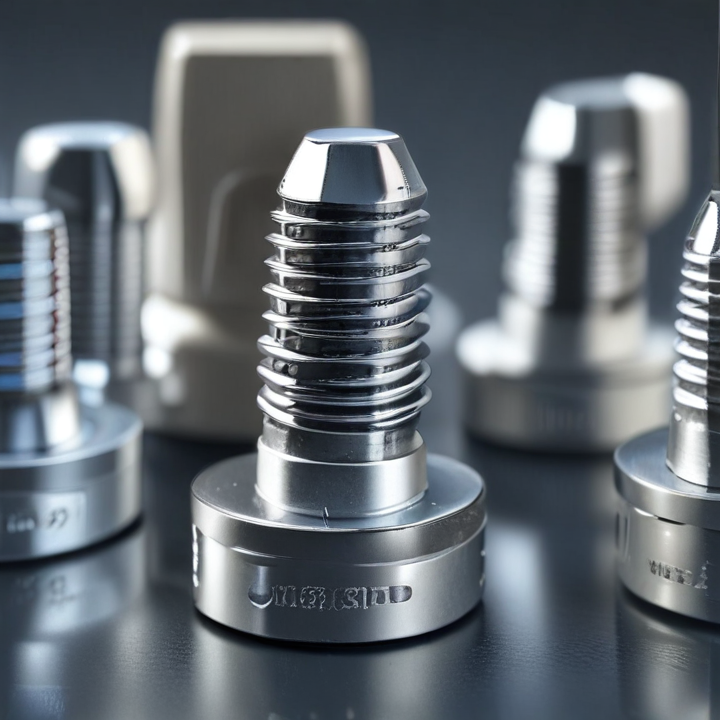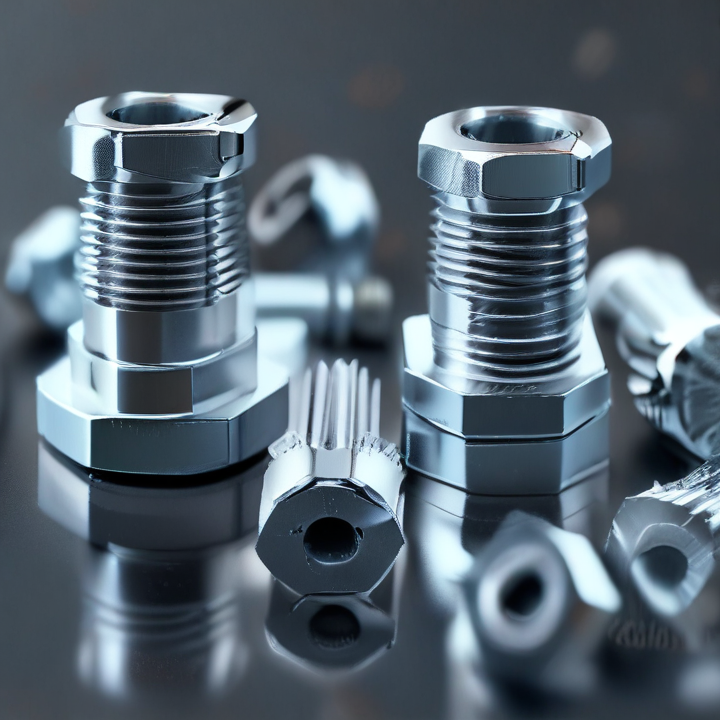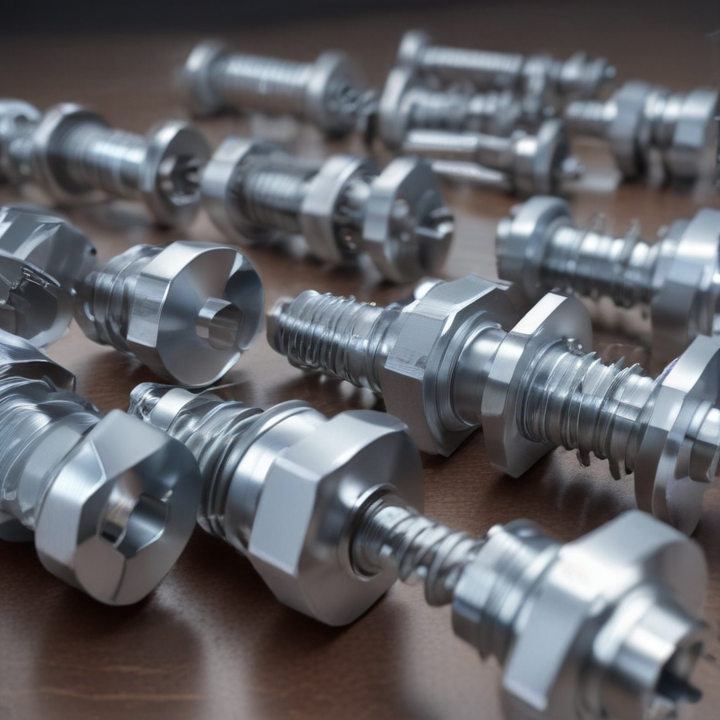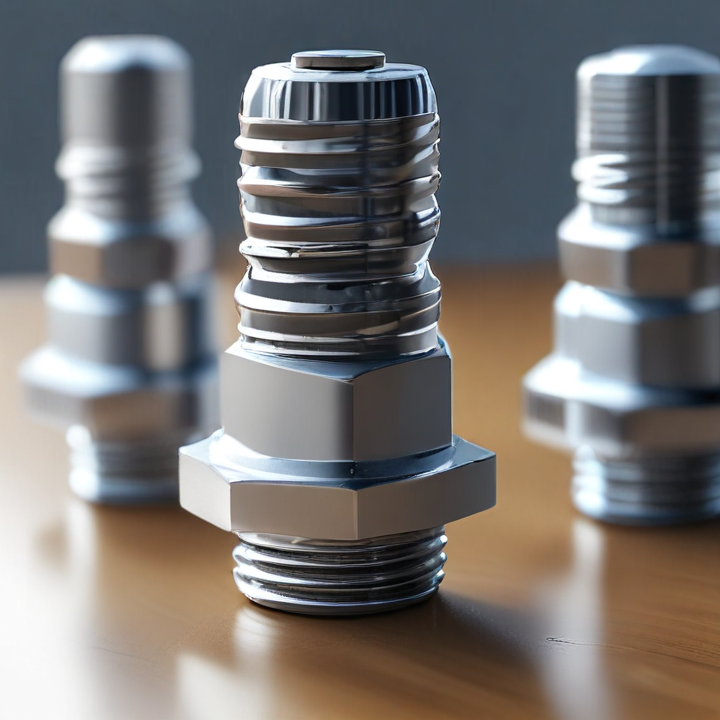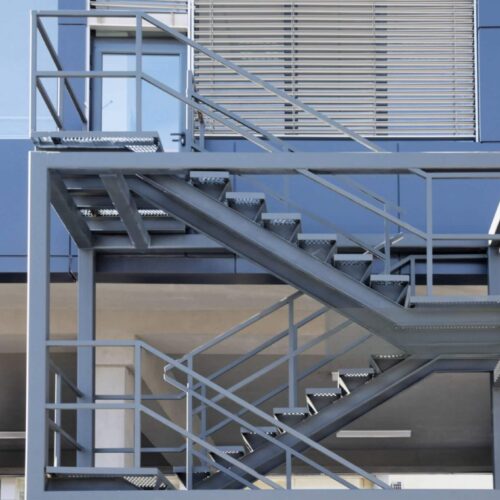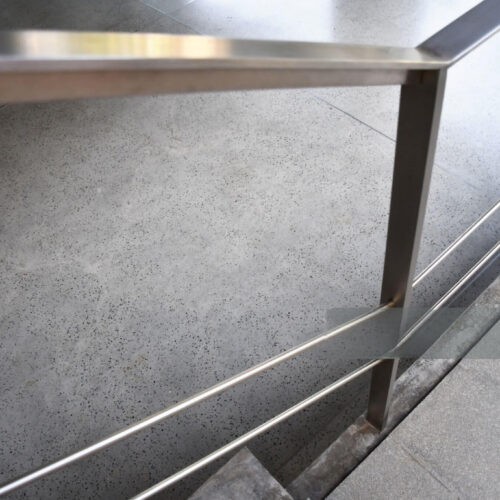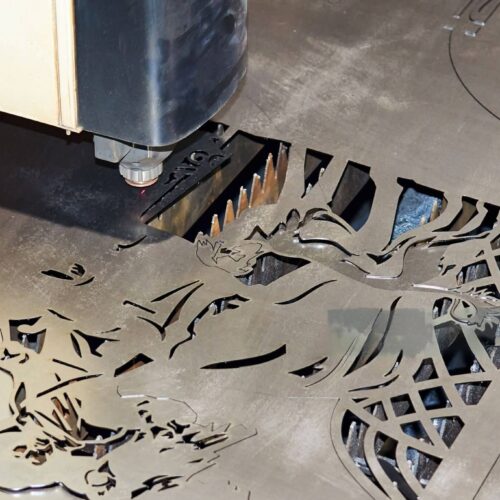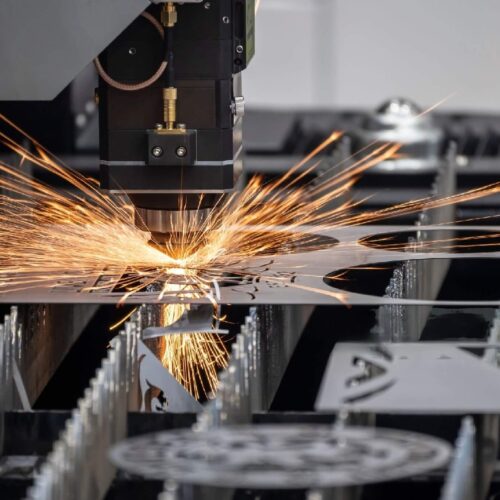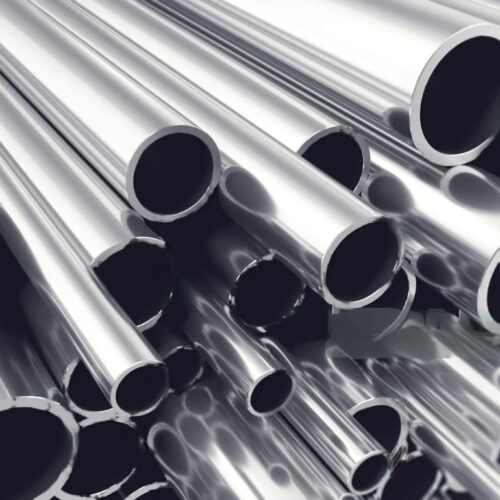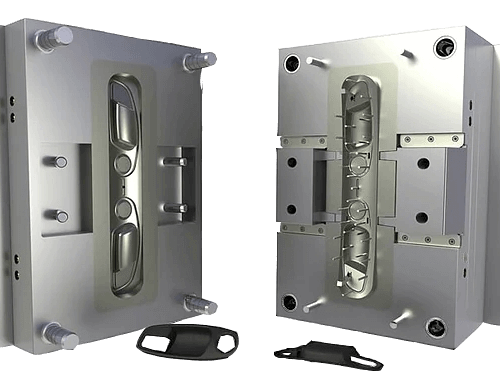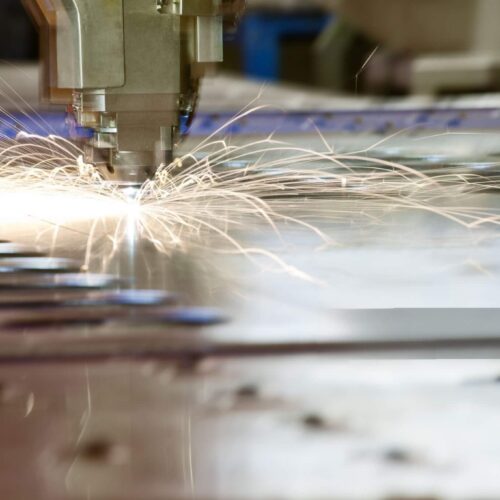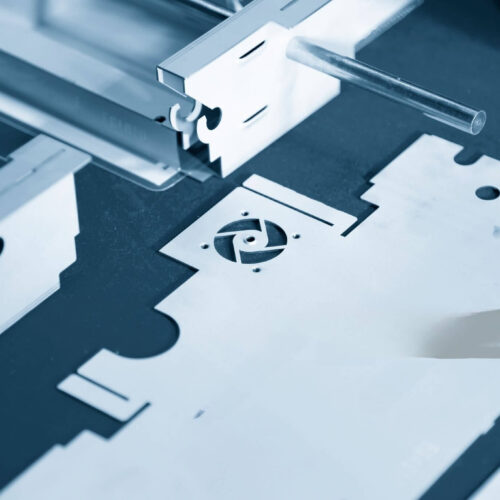cnc bolts Safety Certifications
CNC bolts, like all critical industrial components, must adhere to various safety and quality certifications to ensure their reliability and safety in different applications. These certifications are issued by recognized organizations and are crucial for maintaining standards across industries.
1. ISO 9001: This is a quality management system certification ensuring that a manufacturer consistently meets customer and regulatory requirements. ISO 9001 focuses on continual improvement and operational excellence.
2. ISO 14001: This certification pertains to environmental management systems. It ensures that the manufacturing process of CNC bolts minimizes environmental impact, complies with applicable laws, and strives for continuous improvement in environmental performance.
3. ISO 45001: This standard specifies requirements for occupational health and safety management systems. It ensures that the manufacturing process safeguards the health and safety of workers, identifying and mitigating risks associated with production.
4. DIN/EN Standards: These are specific to the European Union and cover various technical standards. DIN (Deutsches Institut für Normung) and EN (European Norm) standards ensure that CNC bolts meet rigorous technical requirements for dimensions, material properties, and mechanical performance.
5. ASTM Standards: In the United States, ASTM International develops standards that ensure materials and products meet high levels of quality and safety. CNC bolts adhering to ASTM standards are verified for their mechanical properties, material composition, and performance under different conditions.
6. CE Marking: For products sold in the European Economic Area (EEA), CE marking indicates conformity with health, safety, and environmental protection standards. CNC bolts with CE marking meet the EU’s stringent regulatory requirements.
7. RoHS Compliance: The Restriction of Hazardous Substances (RoHS) directive restricts the use of certain hazardous materials in electrical and electronic products. CNC bolts compliant with RoHS ensure they do not contain harmful substances like lead, mercury, or cadmium.
8. REACH Compliance: The Registration, Evaluation, Authorization, and Restriction of Chemicals (REACH) regulation ensures that the use of chemical substances does not pose risks to human health and the environment. CNC bolts meeting REACH requirements are free from harmful chemicals.
These certifications collectively ensure that CNC bolts are manufactured to high standards of quality, safety, and environmental sustainability, making them reliable components in various industrial applications.
List Reference Technical Parameters of "cnc bolts"
Certainly! Here are the reference technical parameters for CNC (Computer Numerical Control) bolts:
1. Material Specifications:
- Steel Grades: Carbon steel, alloy steel, stainless steel (e.g., AISI 304, AISI 316).
- Coatings: Zinc, cadmium, black oxide, phosphate, hot-dip galvanized.
2. Dimensions:
- Thread Size: Metric (e.g., M6, M8, M10) or Imperial (e.g., ¼”, ½”).
- Length: Customizable as per requirements, typically ranging from 10 mm to 200 mm.
- Thread Pitch: Standard (e.g., 1.0 mm for M6) and fine (e.g., 0.75 mm for M6).
3. Mechanical Properties:
- Tensile Strength: Varies by grade, e.g., 600 MPa for mild steel, up to 1300 MPa for high-strength steel.
- Yield Strength: Typically around 0.6-0.9 times the tensile strength.
- Hardness: Measured in HRC or HV, depending on the material and heat treatment.
4. Thread Specifications:
- Standard: ISO, ANSI/ASME, DIN.
- Tolerance Class: 6g (metric), 2A (imperial).
- Thread Type: Coarse, fine, or extra-fine.
5. Surface Finish:
- Roughness: Typically Ra 3.2 µm or better, depending on application.
- Appearance: Matte, polished, or coated as specified.
6. Manufacturing Tolerances:
- Dimensional Accuracy: ±0.05 mm or better, depending on the bolt size.
- Concentricity: Typically within 0.1 mm for precision applications.
7. Heat Treatment:
- Processes such as quenching, tempering, carburizing to achieve desired mechanical properties.
8. Marking and Identification:
- Grade markings and manufacturer’s logo on the head of the bolt for traceability.
These parameters ensure CNC bolts meet specific functional and performance criteria for various industrial applications, ensuring reliability and consistency in use.
List Product features of "cnc bolts"
Product Features of CNC Bolts
1. Precision Engineering:
- CNC (Computer Numerical Control) bolts are manufactured with high precision, ensuring consistent quality and tight tolerances. This precision is crucial for applications requiring exact specifications.
2. Material Variety:
- CNC bolts can be made from various materials, including stainless steel, carbon steel, aluminum, titanium, and specialty alloys. This variety allows for application-specific material selection, enhancing performance and durability.
3. Customization:
- CNC machining allows for the production of custom bolts tailored to specific requirements. This includes unique dimensions, threading, head shapes, and surface finishes to meet particular project needs.
4. Strength and Durability:
- CNC bolts are known for their high strength and durability. The precise manufacturing process ensures that these bolts can withstand high stress and harsh environmental conditions, making them suitable for critical applications.
5. Corrosion Resistance:
- Depending on the material and surface treatment, CNC bolts can offer excellent corrosion resistance. This is particularly important in marine, chemical, and outdoor applications where exposure to corrosive elements is a concern.
6. Thread Accuracy:
- The threading on CNC bolts is produced with high accuracy, ensuring smooth and secure fastening. This reduces the risk of cross-threading and enhances the bolt's overall reliability.
7. Surface Finishes:
- CNC bolts can be finished with various coatings such as zinc plating, anodizing, or powder coating. These finishes not only improve appearance but also add protective layers against corrosion and wear.
8. Enhanced Performance:
- The precision and customization of CNC bolts contribute to their superior performance in mechanical assemblies. They provide secure fastening solutions, reducing the likelihood of failure under dynamic loads.
9. Reproducibility:
- CNC machining ensures that each bolt produced is identical to the last, maintaining consistent quality and performance across large production runs.
10. Application Versatility:
- CNC bolts are used across numerous industries, including automotive, aerospace, construction, and manufacturing, due to their high reliability and adaptability to various engineering demands.
List Various Types of "cnc bolts"
"CNC bolts" refer to bolts that are often used in CNC (Computer Numerical Control) machining for various applications. Here are several types:
1. Hex Bolts: Commonly used for fastening steel and wood. They come in various sizes and materials, including stainless steel and alloy steel.
2. Shoulder Bolts: Feature a cylindrical, unthreaded section between the head and threads, ideal for moving parts in machinery.
3. Flange Bolts: Have a flange beneath the head that distributes pressure evenly, reducing the need for a washer.
4. Socket Head Cap Screws: Used when a strong, precise, and flush finish is required. They fit into a counterbored hole.
5. Countersunk Bolts: Designed to sit flush with the material's surface, often used for a clean finish.
6. Carriage Bolts: Feature a domed head and a square section that grips into the material, preventing the bolt from turning when tightened.
7. Eye Bolts: Feature a looped head and are used for lifting or securing cables and ropes.
8. J-Bolts and U-Bolts: J-bolts are shaped like the letter J and are used for hanging items, while U-bolts are shaped like the letter U and secure pipes and tubes.
9. Stud Bolts: Threaded rods without a head, used in high-pressure applications for flanges and pipe fittings.
10. Anchor Bolts: Used to anchor structures to concrete, they come in various shapes like L-bolts or hook bolts.
11. T-Bolts: Fit into T-slots in machine tables or extruded aluminum profiles, providing a flexible and adjustable fastening solution.
Each type of CNC bolt serves a specific purpose, catering to different requirements in industrial and mechanical applications.
List Application of "cnc bolts"
CNC bolts, precision-manufactured using Computer Numerical Control (CNC) technology, are essential in various industries for their accuracy, strength, and reliability. Here are some notable applications:
1. Aerospace Industry: CNC bolts are used in aircraft construction for securing critical components such as fuselage sections, wings, and landing gear. Their precision ensures safety and performance under extreme conditions.
2. Automotive Industry: High-performance and racing cars benefit from CNC bolts for engine assembly, suspension systems, and transmission components, where precision and durability are crucial.
3. Medical Devices: CNC bolts are used in medical equipment, including imaging machines and surgical instruments. Their exact specifications are vital for ensuring the functionality and safety of these devices.
4. Construction: In the construction of skyscrapers, bridges, and other infrastructure, CNC bolts provide the necessary strength and reliability to handle heavy loads and harsh environments.
5. Machinery Manufacturing: CNC bolts are integral to the assembly of industrial machinery and robotics, where they contribute to the precision and stability of moving parts and structural components.
6. Renewable Energy: Wind turbines and solar panel installations use CNC bolts for their assemblies, ensuring that these systems can withstand environmental stresses and operate efficiently over long periods.
7. Marine Industry: Ships and offshore platforms rely on CNC bolts for critical applications, including engine mounts and structural assemblies, where resistance to corrosion and extreme conditions is essential.
8. Electronics: Precision in electronic components, such as mounting circuit boards and enclosures, is achieved using CNC bolts, ensuring reliable operation and longevity of electronic devices.
9. Defense: Military vehicles, aircraft, and naval vessels use CNC bolts for assembling armor, weapons systems, and structural components, where performance and reliability are paramount.
CNC bolts are indispensable across these sectors, providing the necessary precision and reliability for both safety-critical and high-performance applications.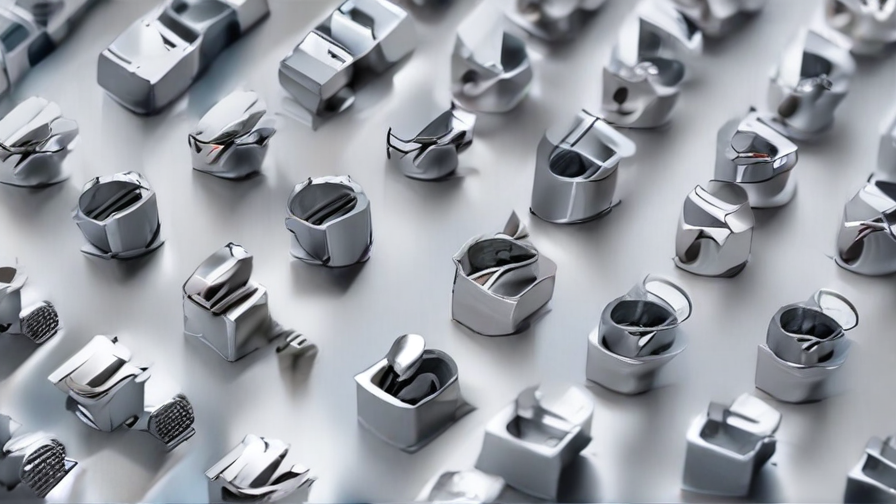
List Buyer Types of "cnc bolts"
When identifying buyer types for CNC (Computer Numerical Control) bolts, several categories emerge based on their specific needs and applications:
1. Manufacturers:
- Automotive Industry: Companies producing vehicles often require CNC bolts for assembling engines, chassis, and other critical components.
- Aerospace Industry: Aerospace manufacturers use CNC bolts for assembling aircraft structures, ensuring precision and reliability.
- Machinery and Equipment: Producers of industrial machinery and heavy equipment use CNC bolts to ensure durability and precision in their products.
- Electronics and Robotics: Manufacturers of electronic devices and robotic systems use CNC bolts for assembling intricate components requiring high precision.
2. Construction Companies:
- These buyers use CNC bolts in construction projects for structural applications, ensuring stability and safety in buildings and infrastructure.
3. Maintenance and Repair Services:
- Companies specializing in the maintenance and repair of machinery, vehicles, and industrial equipment often require CNC bolts to replace worn or damaged components.
4. OEMs (Original Equipment Manufacturers):
- OEMs across various industries require CNC bolts as part of their production process to create original products that meet specific standards and tolerances.
5. Distributors and Suppliers:
- Distributors purchase CNC bolts in bulk to supply various industries, maintaining inventory to meet the needs of manufacturers, repair services, and other end-users.
6. Prototyping and R&D Firms:
- Research and development firms involved in prototyping new products or components often need CNC bolts for assembling prototypes with high precision.
7. Custom Fabrication Shops:
- These shops provide custom parts and components to various industries, often requiring CNC bolts to meet specific customer specifications.
8. Military and Defense Contractors:
- Contractors producing military and defense equipment need CNC bolts for their projects, ensuring parts meet stringent standards for safety and reliability.
Each buyer type has unique requirements, such as specific grades of materials, sizes, and tolerances, which drive their purchasing decisions for CNC bolts.
List "cnc bolts" Project Types for Different Industries
CNC Bolts: Project Types for Different Industries
1. Aerospace:
- Aircraft Structural Components: High-precision bolts for assembling fuselage sections and wing structures.
- Engine Parts: Specialized bolts for turbine assembly and engine mounting.
2. Automotive:
- Chassis Assembly: Bolts for securing frames, suspension systems, and drivetrain components.
- Engine Manufacturing: High-strength bolts for engine block assembly and cylinder head attachment.
3. Construction:
- Steel Frameworks: Heavy-duty bolts for structural steel connections in buildings and bridges.
- Infrastructure Projects: Bolts for securing components in highways, tunnels, and railways.
4. Marine:
- Shipbuilding: Corrosion-resistant bolts for hull assembly and deck structures.
- Offshore Platforms: Bolts for securing equipment and structural components in harsh marine environments.
5. Medical Devices:
- Surgical Instruments: Precision bolts for assembling surgical tools and equipment.
- Medical Implants: Biocompatible bolts for orthopedic implants and prosthetics.
6. Electronics:
- Consumer Electronics: Small, precise bolts for securing circuit boards and casing components in devices like smartphones and laptops.
- Industrial Electronics: Bolts for securing components in larger industrial electronic equipment.
7. Oil and Gas:
- Drilling Equipment: High-strength bolts for assembling drill rigs and other heavy machinery.
- Pipeline Construction: Bolts for flange connections and securing pipeline sections.
8. Renewable Energy:
- Wind Turbines: Bolts for blade attachment and tower assembly.
- Solar Panels: Bolts for mounting panels and securing frames.
9. Railway:
- Track Construction: Bolts for securing rails to sleepers and fastening track components.
- Rolling Stock Manufacturing: Bolts for assembling train carriages and locomotives.
10. Heavy Machinery:
- Mining Equipment: High-tensile bolts for assembling excavators, loaders, and drilling rigs.
- Agricultural Machinery: Bolts for assembling tractors, combines, and other farming equipment.
Each industry utilizes CNC bolts for their specific requirements, emphasizing the importance of precision, strength, and material suitability in various applications.
cnc bolts Accessories Upgrades and Custom Manufacturing Options
CNC Bolts: Accessories, Upgrades, and Custom Manufacturing Options
CNC (Computer Numerical Control) machining has revolutionized the production of bolts and fasteners, offering unparalleled precision and customization. Here are some key aspects of CNC bolts, focusing on accessories, upgrades, and custom manufacturing options:
Accessories
1. Washers and Nuts: Essential for bolt applications, CNC-machined washers and nuts provide a perfect fit and enhance the overall performance.
2. Thread Lockers: These accessories ensure bolts stay secure in high-vibration environments, preventing loosening and ensuring safety.
3. Protective Coatings: Options like zinc plating, anodizing, and powder coating offer additional protection against corrosion and wear.
Upgrades
1. Material Upgrades: CNC bolts can be upgraded with high-strength materials such as titanium, stainless steel, and aerospace-grade alloys for increased durability and performance.
2. Threading Precision: Advanced CNC machines offer superior threading precision, ensuring optimal fit and function in critical applications.
3. Surface Finishes: Enhanced surface finishes, including polished, bead-blasted, or heat-treated options, improve the aesthetic and functional qualities of bolts.
Custom Manufacturing Options
1. Design Flexibility: CNC technology allows for intricate and precise custom designs, catering to specific requirements for unique applications.
2. Prototyping: Rapid prototyping capabilities enable the quick production of custom bolt designs for testing and validation before full-scale manufacturing.
3. Batch Production: Whether small or large-scale production, CNC machining ensures consistent quality and precision across all units.
4. Specialized Applications: Custom bolts can be designed for specialized applications, including aerospace, automotive, and industrial machinery, where standard bolts may not suffice.
In summary, CNC bolts offer a range of accessories and upgrades to enhance their performance and longevity. Custom manufacturing options provide the flexibility to meet specific needs, ensuring precision and reliability in various applications. Whether for prototyping or full-scale production, CNC machining delivers high-quality bolts tailored to exact specifications.
List Quality Control and The Manufacturing Process of "cnc bolts"
Quality Control in CNC Bolt Manufacturing
1. Material Inspection:
- Ensure raw materials (typically high-grade steel) meet specified standards.
- Conduct chemical composition and mechanical property tests.
2. Precision Machining:
- Use CNC (Computer Numerical Control) machines to achieve high precision and consistency.
- Monitor machining parameters like speed, feed rate, and coolant flow.
3. Dimensional Accuracy:
- Utilize advanced measuring tools (calipers, micrometers) and Coordinate Measuring Machines (CMM) to verify dimensions.
- Perform Statistical Process Control (SPC) to monitor and control machining processes.
4. Surface Finish:
- Inspect surface roughness and ensure it meets the required specifications.
- Use profilometers for accurate surface finish measurements.
5. Thread Inspection:
- Ensure threads are cut accurately using thread gauges and optical comparators.
- Check for correct pitch, depth, and form.
6. Heat Treatment:
- Apply heat treatment to enhance strength and durability.
- Monitor temperature and duration precisely; conduct hardness tests post-treatment.
7. Coating and Plating:
- Apply anti-corrosion coatings or plating as required.
- Inspect coating thickness and adhesion through various testing methods.
8. Final Inspection:
- Conduct a thorough visual inspection for defects.
- Use non-destructive testing (NDT) methods like ultrasonic or magnetic particle inspection.
9. Batch Testing:
- Test samples from each batch for mechanical properties like tensile strength and yield strength.
- Use destructive testing methods to ensure batch consistency.
Manufacturing Process of CNC Bolts
1. Design and Programming:
- Create detailed CAD models of the bolts.
- Generate CNC machine code (G-code) to guide the machining process.
2. Material Preparation:
- Select and prepare raw material bars or billets.
- Cut to appropriate lengths if necessary.
3. CNC Machining:
- Load the raw material into the CNC machine.
- Perform turning, threading, and milling operations to shape the bolt.
4. Deburring and Cleaning:
- Remove burrs and sharp edges using mechanical or chemical methods.
- Clean the bolts to remove any residual oil or debris.
5. Heat Treatment:
- Harden and temper the bolts to achieve desired mechanical properties.
6. Surface Treatment:
- Apply coatings like zinc plating or galvanization to prevent corrosion.
7. Final Inspection and Packaging:
- Conduct a final inspection to ensure quality standards are met.
- Package the bolts according to specifications for distribution.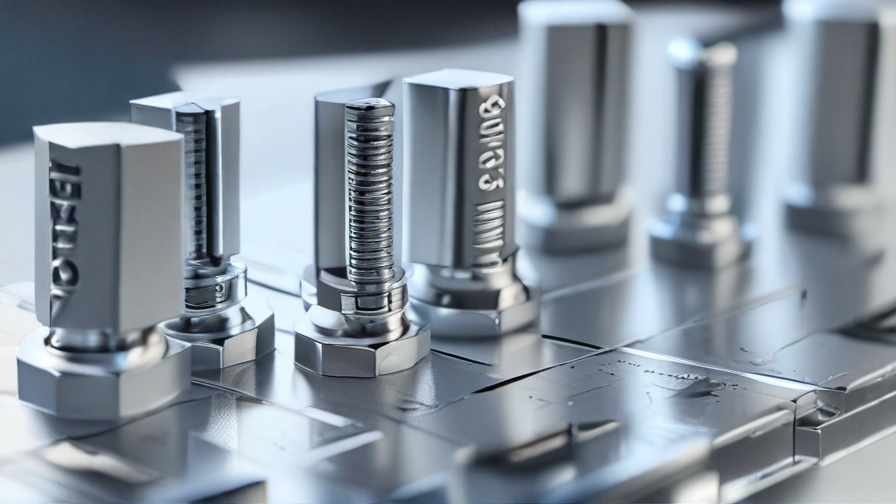
How to use "cnc bolts"
Using CNC bolts involves selecting, installing, and maintaining bolts specifically designed for CNC (Computer Numerical Control) machining applications. Here's a concise guide:
Selection:
1. Material: Choose bolts made from materials compatible with your CNC machine and the materials you’ll be working on (e.g., steel, stainless steel, titanium).
2. Type: Determine the type of bolt needed (e.g., hex head, socket head, countersunk) based on the machine design and application requirements.
3. Size: Ensure the bolt size matches the specifications of your CNC machine, considering both diameter and length.
Installation:
1. Preparation: Clean the bolt holes and the bolts themselves to remove any debris or oil.
2. Alignment: Align the parts to be joined, ensuring that bolt holes are properly aligned.
3. Insertion: Insert the bolt into the hole and hand-tighten it to hold the parts in place.
4. Tightening: Use the appropriate tool (wrench or Allen key) to tighten the bolt. Follow the manufacturer’s torque specifications to avoid over-tightening, which can damage threads or cause mechanical failure.
Maintenance:
1. Inspection: Regularly inspect bolts for wear, corrosion, or damage. Replace any compromised bolts immediately.
2. Lubrication: Apply suitable lubricants to the threads to prevent seizing and to ensure smooth installation and removal.
3. Retightening: Periodically check and retighten bolts as needed to maintain secure connections, especially after heavy use or vibration.
Safety Tips:
- Follow Guidelines: Always adhere to the CNC machine manufacturer’s guidelines for bolt usage.
- Proper Tools: Use the correct tools for tightening and loosening bolts to avoid stripping threads.
- Protective Gear: Wear appropriate protective gear when handling bolts and working with CNC machines.
By following these steps, you can effectively use CNC bolts to maintain the integrity and performance of your CNC machinery.
"cnc bolts" Comparative Analysis
When comparing CNC bolts, it's essential to consider various materials and machining methods to understand their strengths, weaknesses, and applications. Here's a concise comparative analysis:
1. Material Comparison:
- Stainless Steel vs. Galvanized Steel: CNC machining of stainless steel offers high durability and corrosion resistance, making it ideal for harsh environments. Stainless steel is generally harder to machine and requires specific tools and coolants. In contrast, galvanized steel is easier to machine and more cost-effective but has moderate corrosion resistance, which can be compromised if the coating is damaged.
- Brass vs. Aluminum: Brass is valued for its aesthetic appeal, corrosion resistance, and good machinability, commonly used in automotive and electronic connectors. Aluminum, being lightweight and cost-effective, is preferred in aerospace and consumer electronics. Each material requires different machining techniques, such as chip control for brass and precise workholding for aluminum.
2. Axis Configuration in CNC Machines:
- 3-Axis: These machines are straightforward, suitable for simple components and general machining tasks. They are cost-effective and easy to program, making them ideal for prototyping and less complex parts.
- 4-Axis: Adding a rotational axis allows for machining multiple sides of a workpiece without repositioning, enhancing efficiency for intricate parts like molds and aerospace components.
- 5-Axis: These machines provide the highest precision and versatility, essential for complex geometries found in aerospace and medical device manufacturing. They reduce setup times and improve surface finish by accessing difficult-to-reach areas from multiple angles.
3. CNC vs. Casting:
- Strength and Durability: CNC machining often results in stronger parts due to the uniformity and precision of the process, avoiding imperfections like air pockets and inclusions common in casting. Machined parts exhibit better fatigue resistance and structural integrity.
4. CNC Plasma Cutters:
- JD’s Garage CNC Plasma Cutter: Known for its precision (±0.1mm tolerance), versatility in cutting various materials, and user-friendly interface. It competes well against others like XYZ Plasma Cutter, which is more affordable but less precise, and ABC CNC, which offers similar precision but lacks the versatility of JD’s models .
In conclusion, the choice of CNC bolts and machining methods depends on the specific requirements of the project, such as material properties, precision, and complexity of the parts. Understanding these factors helps in selecting the right material and CNC machine configuration to achieve optimal results.
"cnc bolts" Warranty and Support
Warranty and Support for CNC Bolts
Warranty:
CNC bolts typically come with a manufacturer's warranty that ensures the product is free from defects in material and workmanship under normal use. The duration of the warranty can vary, commonly ranging from one to five years, depending on the manufacturer. This warranty covers repair or replacement of the bolts at no extra cost, provided that the failure is due to manufacturing defects and not from misuse, improper installation, or normal wear and tear. To claim the warranty, users usually need to provide proof of purchase and details of the defect.
Support:
Manufacturers and suppliers of CNC bolts often provide extensive customer support to ensure optimal performance and customer satisfaction. Support services may include:
1. Technical Assistance: Expert guidance on the selection, installation, and maintenance of CNC bolts to ensure they meet the specific requirements of your application.
2. Installation Support: Detailed manuals, video tutorials, and, in some cases, on-site assistance to help with the proper installation of the bolts.
3. Maintenance Tips: Regular updates and tips on maintaining the bolts to extend their lifespan and performance.
4. Customer Service: Dedicated helplines, email support, and online chat services to address any questions or concerns promptly.
5. After-Sales Service: Post-purchase support including troubleshooting, replacement parts, and handling of warranty claims.
Conclusion:
The warranty and support for CNC bolts are designed to provide peace of mind and ensure the longevity and reliability of the product. By offering comprehensive warranties and robust customer support, manufacturers aim to deliver high-quality products and excellent customer service. Always check the specific terms and conditions of the warranty and support services provided by the manufacturer or supplier before making a purchase.
List "cnc bolts" FAQ
CNC Bolts FAQ
What are CNC bolts?
CNC bolts are fasteners specifically designed for use in CNC (Computer Numerical Control) machining. They are precision-engineered to ensure high accuracy and reliability in securing components in CNC machines.
What materials are CNC bolts made from?
CNC bolts can be made from various materials, including stainless steel, carbon steel, alloy steel, and sometimes titanium. The choice of material depends on the specific application and required strength, corrosion resistance, and durability.
What sizes do CNC bolts come in?
CNC bolts are available in a wide range of sizes, typically measured by diameter (in inches or millimeters) and length. Common sizes range from M3 to M20 in metric measurements and from 1/8 inch to 1 inch in imperial measurements.
How are CNC bolts different from standard bolts?
CNC bolts are manufactured with higher precision and tighter tolerances than standard bolts. This ensures better fitment and performance in CNC machinery, where exact dimensions are crucial for maintaining accuracy and stability.
What are the common applications of CNC bolts?
CNC bolts are used in various industries, including aerospace, automotive, electronics, and manufacturing, to assemble and secure components within CNC machines and other precision equipment.
How do I choose the right CNC bolts for my application?
Selecting the right CNC bolts involves considering factors such as material compatibility, size and length requirements, load-bearing capacity, and environmental conditions (e.g., exposure to moisture or chemicals). Consulting with a supplier or engineer can help determine the best option.
Can CNC bolts be customized?
Yes, CNC bolts can often be customized to specific requirements. Customization options may include different materials, coatings for enhanced corrosion resistance, and special threading or head designs.
Where can I purchase CNC bolts?
CNC bolts can be purchased from specialized industrial suppliers, online marketplaces, and directly from manufacturers. It's important to buy from reputable sources to ensure quality and reliability.
What maintenance do CNC bolts require?
CNC bolts typically require minimal maintenance but should be inspected regularly for signs of wear, corrosion, or damage. Proper lubrication and ensuring they are tightened to the correct torque specifications can extend their lifespan.
Top 10 FAQ with answer about cnc bolts for Buyer Sourcing from China
1. What are CNC bolts?
CNC bolts are precision fasteners manufactured using Computer Numerical Control (CNC) machines. These bolts are produced with high accuracy and consistency, making them suitable for applications requiring tight tolerances.
2. Why source CNC bolts from China?
China offers a vast network of manufacturers capable of producing high-quality CNC bolts at competitive prices. The advanced manufacturing capabilities and cost-effective labor make China a favorable option for sourcing.
3. What materials are commonly used for CNC bolts?
CNC bolts are typically made from stainless steel, carbon steel, alloy steel, titanium, and aluminum. The choice of material depends on the application's requirements for strength, corrosion resistance, and weight.
4. How do I ensure the quality of CNC bolts from Chinese suppliers?
Verify the supplier’s certifications (ISO 9001, TS16949), request samples, and review customer feedback. Quality control processes such as material testing, dimensional inspections, and mechanical property verification are essential.
5. What is the typical lead time for CNC bolts from China?
The lead time varies depending on the order size, complexity, and production capacity of the supplier. Generally, it ranges from 2 to 6 weeks, including manufacturing and shipping time.
6. Can I customize CNC bolts according to my specifications?
Yes, most Chinese manufacturers offer customization services. You can provide your specifications, including dimensions, materials, and surface treatments, to get bolts tailored to your needs.
7. What are the common surface treatments for CNC bolts?
Surface treatments include zinc plating, galvanizing, anodizing, black oxide, and passivation. These treatments enhance corrosion resistance, appearance, and durability.
8. How do I handle logistics and shipping for CNC bolts from China?
Work with a reliable freight forwarder experienced in international shipping. They can manage customs clearance, documentation, and transportation to ensure timely and safe delivery.
9. What payment terms are common when sourcing from China?
Common payment terms include T/T (Telegraphic Transfer), L/C (Letter of Credit), and sometimes Western Union or PayPal for smaller orders. It’s crucial to establish clear payment terms before placing an order.
10. How can I find reputable CNC bolt suppliers in China?
Use online platforms like Alibaba, Global Sources, and Made-in-China. Attend trade shows, and ask for recommendations within your network. Always perform due diligence by checking references and conducting factory audits.

